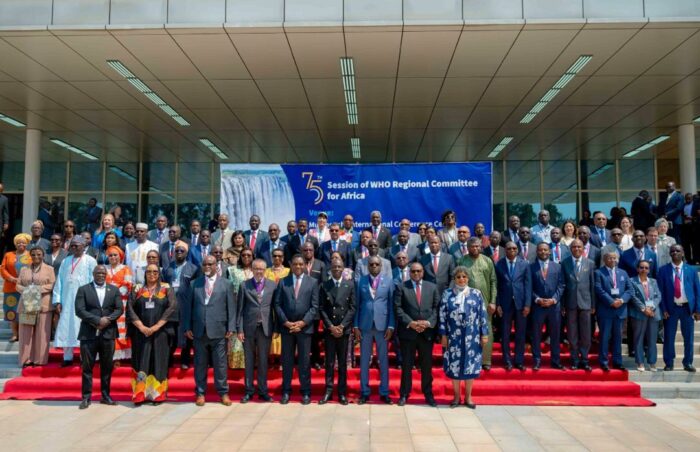Health ministers from African countries met at the 75th World Health Organization (WHO) Regional Committee in Lusaka, Zambia. They agreed on plans to make health systems stronger and help more people get healthcare across Africa.
The meeting lasted three days and included ministers from 47 countries. They approved important actions on topics like dental health, blood shortages, rehabilitation services, care for mothers and children, malaria, health workers, and health security. These plans will guide Africa’s health work for the next few years.
In his opening speech, Zambia’s President Hakainde Hichilema asked African leaders to learn from the COVID-19 pandemic. He said they should work together on health rules, use health to help trade and industry, and strengthen cooperation between countries. He said, “Working together with care for people must guide our decisions to improve health across Africa.”
WHO Director-General Dr. Tedros Adhanom Ghebreyesus said the meeting was very important to plan a healthy future for Africa. He said WHO is helping African countries face money and security problems while also using Africa’s strengths.
WHO Regional Director for Africa, Dr. Mohamed Janabi, said health is not a cost but a key to success. He encouraged countries to build health systems that are honest, responsible, and focused on people.
During the meeting, ministers promised to improve health services for millions who don’t have access. They agreed to improve dental care by 2030, fix blood supply problems, increase voluntary blood donations, and strengthen rehabilitation services, which most people currently cannot get.
They also talked about better care for women, children, and teenagers. This is very important because Africa has 70% of the world’s maternal deaths. They also promised to fight malaria faster, as it still kills many people every year.
Health security was another key topic. Ministers agreed on new plans to detect health problems early and prepare for crises. This is important because Africa reported more than 250 public health emergencies in 2024 alone.
The decisions made in Lusaka are a big step toward building stronger and fairer health systems. Leaders said that Africa’s future depends on the health and well-being of its people.


